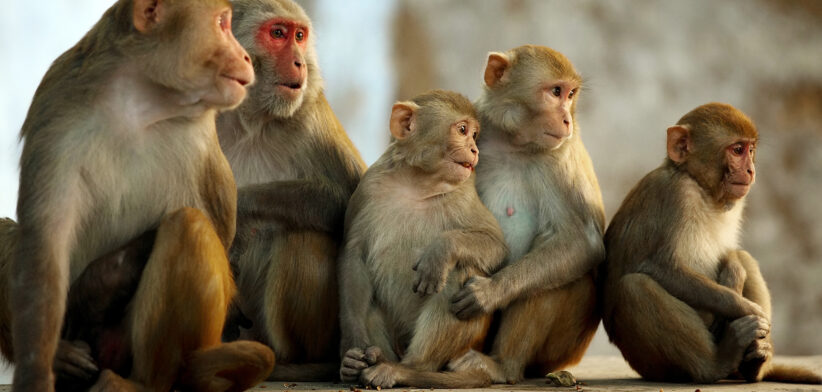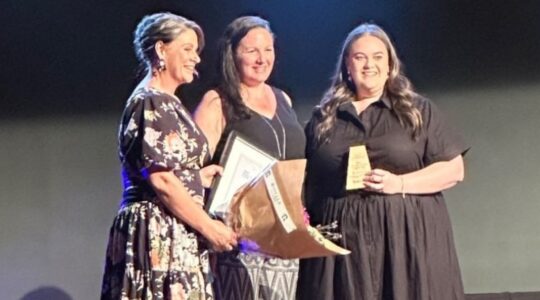Monkeys faced with disaster and loss of habitat are able to alter the rules of their society to increase their survival chances.
A study led by the universities of Pennsylvania and Exeter and published in the journal Science, plotted a remarkable change after a hurricane devastated a monkey home in Puerto Rico.
Hurricane Maria hit the island in 2017, killing more than 3000 people and also destroying 63 percent of vegetation on Cayo Santiago (also known as Monkey Island).
In the aftermath, the rhesus macaques monkeys were forced to share the remaining vegetation and develop a greater tolerance for others in their community.
Dr Camille Testard, from the University of Pennsylvania, said the research team reviewed 10 years of data on the strength of macaques’ social ties, before and after the hurricane.
“In response to the drastic changes caused by the hurricane, macaques persistently increased tolerance and decreased aggression towards each other,” she said.
“Before the hurricane, tolerating others had no impact on risk of death.
“Afterwards, macaques that displayed more than average social tolerance – and were therefore better able to share shade – were 42 percent less likely to die than those that were less tolerant.
“In effect, the hurricane changed the rules of the game in the monkeys’ society.”
The researchers said, with many ecosystems changing rapidly due to human activity, the study showed that some species were able to adapt their social strategy to survive.
“Macaques aren’t the best at sharing resources, be that food or shade. They are well known to live in an aggressive, highly competitive society,” Professor Lauren Brent, from the University of Exeter, said.
“But in the heat caused by ecological changes, often around 40C, the macaques had to share space or die.”
“For group-living animals, social relationships may allow them to cope with disturbances in the environment, including human-induced climate change.
“We were surprised the macaques’ social behaviour was so flexible, making them resilient to this environmental change, but some species may not display this same flexibility.”
The paper is entitled: “Ecological disturbance alters the adaptive benefits of social ties.”








